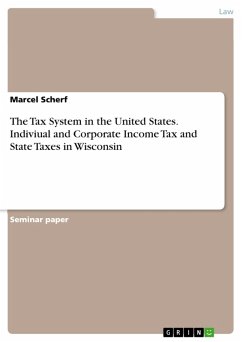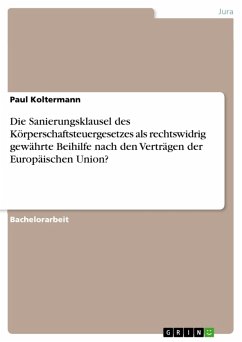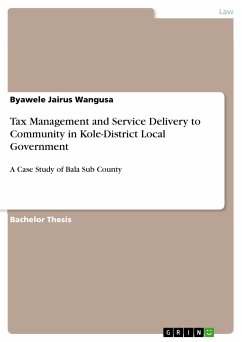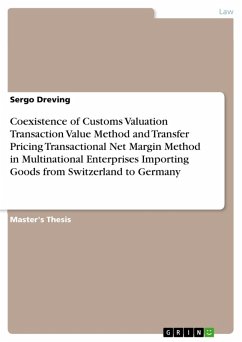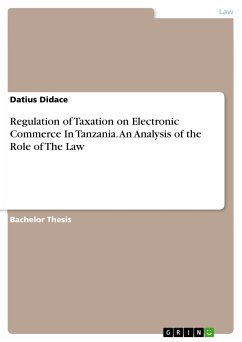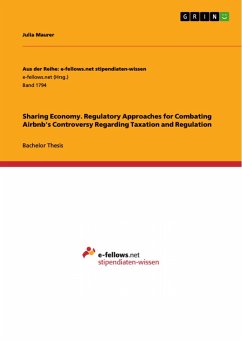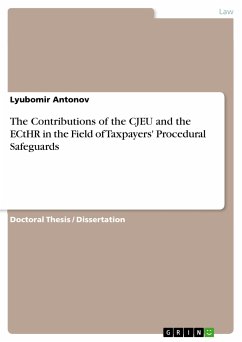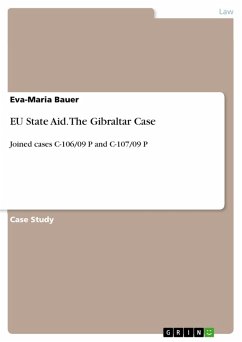
EU State Aid. The Gibraltar Case (eBook, PDF)
Joined cases C-106/09 P and C-107/09 P
Versandkostenfrei!
Sofort per Download lieferbar
Statt: 15,95 €**
6,99 €
inkl. MwSt. und vom Verlag festgesetzt.
**Preis der gedruckten Ausgabe (Broschiertes Buch)
Alle Infos zum eBook verschenkenWeitere Ausgaben:

PAYBACK Punkte
0 °P sammeln!
Case Study from the year 2016 in the subject Law - Tax / Fiscal Law, grade: Sehr gut, Vienna University of Economics and Business (Institut für Österreichisches und Internationales Steuerrecht), course: Tax Law Seminar, language: English, abstract: Since the beginning of the economic and financial crisis harmful tax competition increased and therefore also public concern in regard to aggressive tax planning augmented. Many countries try to attract foreign capital by setting low corporate income taxes. For example in Ireland and in Cyprus there is a tax of 12.5 %. A lot of multinational compa...
Case Study from the year 2016 in the subject Law - Tax / Fiscal Law, grade: Sehr gut, Vienna University of Economics and Business (Institut für Österreichisches und Internationales Steuerrecht), course: Tax Law Seminar, language: English, abstract: Since the beginning of the economic and financial crisis harmful tax competition increased and therefore also public concern in regard to aggressive tax planning augmented. Many countries try to attract foreign capital by setting low corporate income taxes. For example in Ireland and in Cyprus there is a tax of 12.5 %. A lot of multinational companies use these tax systems to reduce their overall tax burden and so they choose a low-tax-country for incorporation. To mention the BEPS Action Plan, many actions aim at reducing aggressive tax practises and therefore reducing shifting profits in low-tax-countries. As there will be no way in near future to harmonize tax bases and tax rates within the European Union, the European Commission tries to restrict distorting tax competition by using EU State Aid rules. Therefore it does not focus on tax rates or policies as such, but on tax rulings for specific firms. The Commission stated that: "Under State aid rules, national authorities cannot take selective measures that allow certain companies to pay less in taxes than they should if the tax rules of the country were applied in a fair and non-discriminatory way."
Dieser Download kann aus rechtlichen Gründen nur mit Rechnungsadresse in A, B, BG, CY, CZ, D, DK, EW, E, FIN, F, GR, HR, H, IRL, I, LT, L, LR, M, NL, PL, P, R, S, SLO, SK ausgeliefert werden.




